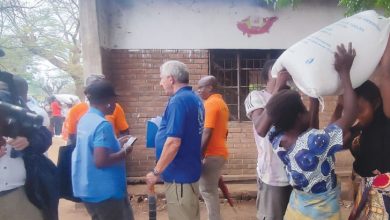Malawi faces more threats of disasters
Local agriculture think-tank Mwapata Institute says the recent spike in extreme storm events in Malawi is not an unfortunate coincidence, but the continuation of a trend for the foreseeable future.
In its recent working paper released this month, the think-tank said the Indian Ocean surface temperature (IOST) is rising, leading to stronger storms forming in the area that gives birth to threats to southern Africa’s east coast.
The think-tank observes that these storms are surviving longer after landfall, increasing their probability of striking Malawi and other inland areas.

Another factor which necessitates storms to travel faster is deforestation, with the think-tank suggesting the need to address ensure the challenge.
Titled ‘Policy implications of escalating tropical cyclone threats to Malawi amidst rising Indian Ocean temperatures’, the paper was put together by Mwapata’s William Burke, Milu Muyanga and Maggie Munthali.
It reads in part: “In addition to acting as a physical barrier to storm winds, forested land keeps ground surfaces cooler and increases the land’s ability to hold water.
“The areas that would serve as a buffer to Malawi, particularly eastern Mozambique and Madagascar, represent some of the most deforested areas over the past two decades.”
In the nearer-term, it suggests that policymakers and donors could plan to support disaster preparedness for effective response, develop comprehensive multi-sectoral and multi-hazard risk maps and investment plans, but also establish area-specific preparedness awareness and emergency plans.
On the other hand, in the long-term, it suggests investments such as improvement of road infrastructure, which would facilitate both evacuating areas facing an incoming threat and the provision of aid in its aftermath.
It also calls on authorities to aid households in improving preparedness by conducting public awareness campaigns to explain the importance of being ready for these increasingly likely events, and what “being ready” means.
Meanwhile, the Department of Disaster Management Affairs (Dodma) has said Malawi has lost $1.19 billion (about K2.1 trillion) to disasters between 2015 and 2023. Without investments, it means Malawi can continue losing a lot.
The project is being piloted in Blantyre and Phalombe, some of the districts which were heavily affected by Cyclone Freddy in March 2023 and specifically to institute ways of knowing in advance the oncoming disasters and respond before they strike.



